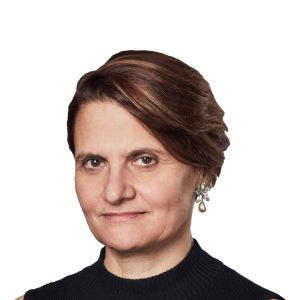An untold EU story about NHS and Brexit


Roula Khalaf, Editor of the FT, selects her favourite stories in this weekly newsletter.
When I escorted my husband to accident and emergency at London’s University College Hospital a couple of Saturday nights ago, I found myself thinking about the EU referendum.
The queue for care included foreigners who could barely explain what the matter was, let alone call the NHS helpline to see whether they needed A&E in the first place. When we finally got past the reception area, the corridors were dotted with (mostly native) drunks whose rowdiness had caused staff to call the police.
Soon, though, the UN-style National Health Service, with a quarter of its staff from the EU, swung into action and pinned down my husband’s pneumonia. So far, so predictable. In such an environment the Brexiters’ promise of extra cash and fewer patients for the health service might seem tempting. But an important part of the story about the EU and the NHS remains untold.
It was the same A&E department we had visited many times in the late noughties when our son suffered up to 40 fits a day, caused by complex epilepsy that Great Ormond Street Hospital was unable to master.
Max was eventually cured by cutting-edge brain surgery in Paris, thanks to the right of EU citizens to be treated free of charge by specialists elsewhere in the bloc when their home country cannot help.
But his salvation was also a striking illustration of the EU’s failure to make such benefits more accessible to ordinary citizens — and why the nation may vote Leave on June 23.
It was only because a childhood friend living in Paris, herself an epileptic, had mentioned Max to her doctor that he enjoyed a right enshrined in a 2006 ruling by the European Court of Justice.
In 2009, my husband’s online searches for an alternative to GOSH had thrown up Bonn, Cleveland, Ohio, and Istanbul, but never once Ste Anne hospital in Paris.
Yet our Paris friend’s doctor, Francine Chassoux, turned out to be a pioneer in detecting the sort of small area of irregular brain tissue, known in the parlance as cortical dysplasia, behind Max’s seizures. The British specialists, who had even met the Frenchwoman at medical conferences, never once thought to refer us to her.
Our reliance on a coincidence — the medical equivalent of finding a needle in a haystack — raised the question of how many more children could be spared a lifetime of debilitating illness if all patients had the information needed to exercise that right.
After writing about Max’s experience, I was so moved by enquiries about whether his doctors could help others, I even considered quitting my job at the Financial Times. As a good (US-born) European, including an early career in Brussels featuring an ambitious Boris Johnson as my first floor neighbour, I thought of creating a database where EU citizens could type in symptoms to discover centres of expertise and treatment.
As politicians bang on about the “elitist” EU, such a tool would make the EU desperately relevant to everybody. That is why the right response to the EU is to Remain — and combat its shortcomings. In the five years since I briefly nursed that altruistic ambition, progress has been slow. A directive adopted in April 2011, three months after Max’s operation, sought to clarify how citizens could exercise this right.
But this benefit remains little known, judging by the surprise I encounter whenever I tell Max’s story, including to a wheelchair-bound gentleman who was asking me for advice on how to vote.
A lack of information-sharing is not confined to hospitals or the UK. It took a letter from Max to French President François Hollande for Dr Chassoux and the surgeon, Bertrand Devaux, to be awarded their country’s highest distinction, the Légion d’Honneur.
There is too much to fix to leave the EU to the care of politicians. Come June 24, I may yet take that job.
leyla.boulton@ft.com
Comments